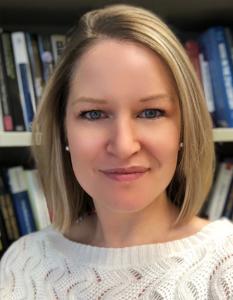At ICCM, we define teams and collaboration as a collective of individuals working together interdependently toward the accomplishment of some shared goal(s).
Teams can be more effective than individuals, particularly for complex and creative tasks, as well as complex decision-making. For that reason, organizations are increasingly utilizing project teams and other forms of collaboration to accomplish organizational goals. However, teams are social entities. As such, they are more than just a sum of their parts and are influenced by the context in which they operate.
Taking a multilevel approach to understanding how individuals, teams, and the broader organization function as a holistic system is critical for implementing targeted interventions to improve team and organizational effectiveness.
Projects within this portfolio have a primary focus on emergent states, processes, and performance in higher-level social entities such as collaborative dyads, teams, or multiteam systems.
Highlighted current projects:
Army Research Institute: Next Generation Team Research
This collaborative agreement between the Army Research Institute (ARI) and four universities (Florida Tech, Rice University, University of Georgia, and Clemson University) and two applied research firms (Aptima and the Group for Organizational Effectiveness) entails developing and conducting experimental research to create a new team research paradigm and unobtrusive measures of team constructs.
Air Force Office of Scientific Research: Human-Agent Teams Grant
This effort is a 3-year multidisciplinary, collaborative effort being conducted by Florida Tech’s Advancing Technology-Interaction and Learning in Aviation Systems (ATLAS) Lab and ICCM. The team will develop and begin to validate a Multilevel, Dynamic Framework of Trust Dynamics in Human-Agent Teams (HATs) and associated unobtrusive measures of HAT trust. It is anticipated that this effort will result in an empirically validated (a) model of HAT Trust Dynamics and (b) unobtrusive and objective measures of HAT trust. The outcomes will help inform the design, implementation, and training of agents and human teammates resulting in improved team dynamics, increased team performance, and mission effectiveness. This work is supported by the Air Force Office of Scientific Research under award number FA9550-21-1-0294.
Current research:
- A theoretical investigation into the emergence process of intragroup conflict
- An exploration of the emotional contagion process between dyads to entire teams
- An ongoing longitudinal teams research study that examines team composition, processes, and emergent states of engineering teams
- An experimental study that investigates the impact of different types of training on virtual teams
- A theoretical examination of the way traits are expressed in teams
- A validation study and exploration of how trust and distrust is best conceptualized and measured
- An investigation into the process of internal monitoring, adjusting, and maintaining during long-duration space exploration
- The development of a theoretical framework to explain the dynamics of organizational subsystems

